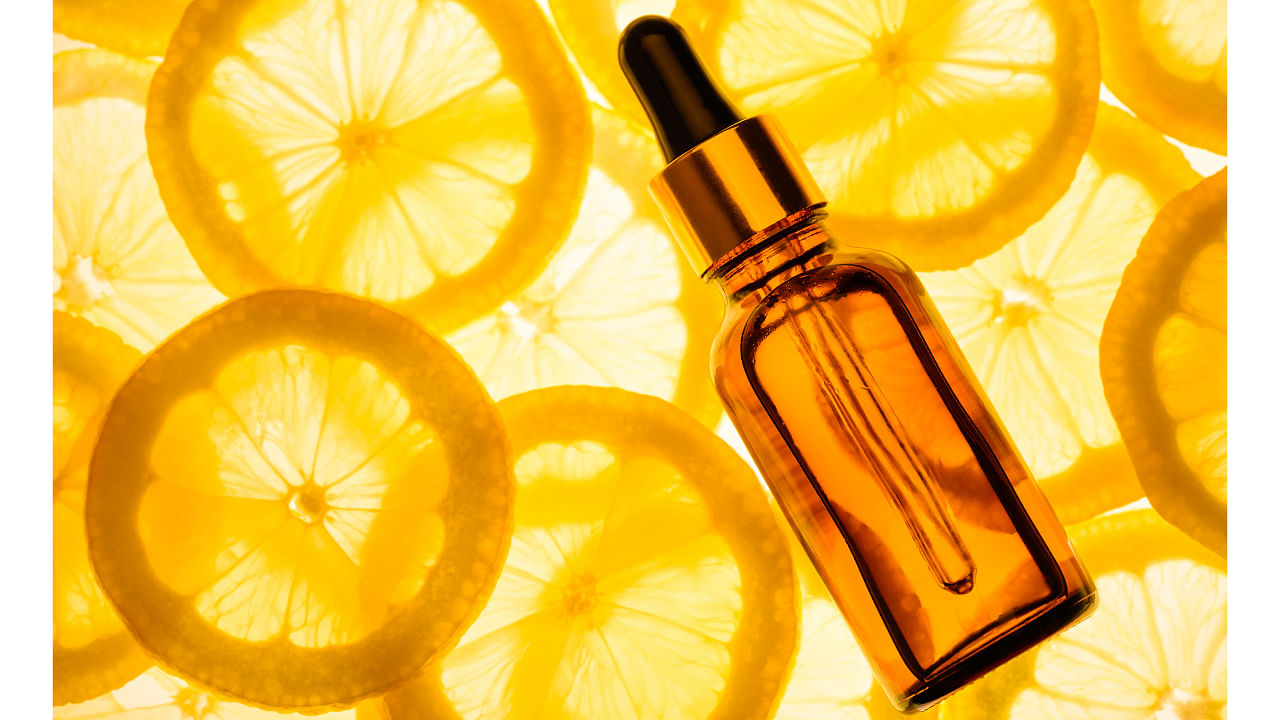
What is the most common advice you hear after you sneeze a couple of times and tell those around you that it's a seasonal flu?
The uber cautious will urge you get a Covid-19 test, others will suggest home remedies like kadha and warm liquids.
Now translate this into a skin ailment such as dullness or acne. The advice has moved on from face packs to Vitamin C. So much so that it has become like the dolo of skincare regimes.
Beauty experts, from dermatologists, salon beauticians and social media influencers as well as cosmetic brands have begun prescribing it or including it as the most active ingredient in their products.
In Pics | Tips to make your skin summer ready
Pick up any product from the shelf for toning, maintaining skin ph or cleansing - you will notice that vitamin C is an underlined ingredient.
Not only have influencers and companies focused their research and advertising strategy on this element, but consumers too seem to prefer products that have a higher concentration of the C constituent.
"It maintains the elasticity and has anti-ageing benefits that keeps the skin healthy,” Shahnaz Husain, CMD of the Shahnaz Husain Group told The Economic Times.
Skincare companies capitalised on the craze by introducing separate lineups of vitamin C products. And the result? These soon became a major hit
“Our vitamin C range that comprises moisturisers, toners scrub and serum are doing 40% better than other ranges,” Biotique chairman Vinita Jain said.
"Vitamin C range in India contributes 8% to our business in India,” Antara Kundu, deputy GM - South Asia of the premium brand The Body Shop told the publication.
Lotus Herbals too has an entire product range dedicated to Vitamin C products. “We have launched a dozen products in the segment in the last few weeks which are doing exceptionally well,” Nitin Passi, chairman and MD of Lotus told ET.
Colorbar's founder Samir Modi however has a different issue. The company's newly-launched Hemp+Vitamin C range seems to be clearing shelves just like people's skin. “The entire range is running out of stock. We launched the range only last month, but it is completely sold out as we speak,” he told the publication.
However, two problems could emerge out of this fad even as most consumers prefer the more easily absorbed Vitamin C to thicker creams and lotions,: Firstly, influencers and brands will have to reiterate patch tests since Vitamin C products come in different concentrations and higher concentrations could give people allergic reactions.
Secondly, Vitamin C products should be used after they have been prescribed by a dermatologist as every person's skin type will react differently. Brands will also have to authenticate and specify the potency of the constituent in its products, a practice which is only followed for non-comedogenic products
"Most people do not have knowledge about the right concentration and carrier needed for their type of skin that ensures penetrating the skin barriers. ,” Dr Kashish Kalra, head of department, Dermatology, Max Smart Hospital, New Delhi told the news portal.